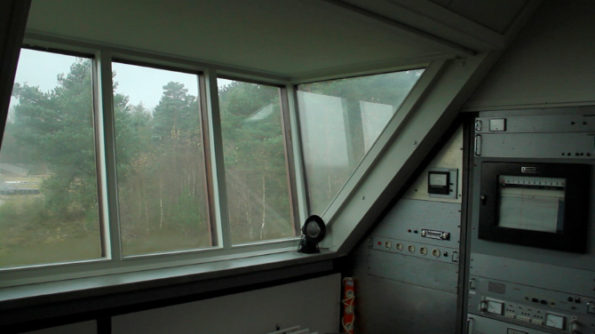Search
To search for an exact match, type the word or phrase you want in quotation marks.
A*DESK has been offering since 2002 contents about criticism and contemporary art. A*DESK has become consolidated thanks to all those who have believed in the project, all those who have followed us, debating, participating and collaborating. Many people have collaborated with A*DESK, and continue to do so. Their efforts, knowledge and belief in the project are what make it grow internationally. At A*DESK we have also generated work for over one hundred professionals in culture, from small collaborations with reviews and classes, to more prolonged and intense collaborations.
At A*DESK we believe in the need for free and universal access to culture and knowledge. We want to carry on being independent, remaining open to more ideas and opinions. If you believe in A*DESK, we need your backing to be able to continue. You can now participate in the project by supporting it. You can choose how much you want to contribute to the project.
You can decide how much you want to bring to the project.

The Montehermoso cultural centre in Vitoria presents Nouvelle Science Vague Fiction, a project by Regina de Miguel that can be visited until 1 January.
Nouvelle Science Vague Fiction has kept Regina de Miguel occupied for the last three years. It is a research project, in a variety of formats, looking at the limits of our ability to know and identify the cognizable. The work suggests accessing this question through participating in an experience of time, in which references to the present, past and future coexist. In parallel, to this production, the artist has published the development of the project on the website nouvellesciencevaguefiction.tumblr.com, where one can access some of the sources that she has consulted.
Nouvelle Science Vague Fiction feeds off sources of popular culture as much as off the work of scientists and political theorists. With the atlas of images that she generates in the project, Regina gives shape to the initial desire that motivates voyages to regions that can barely be mapped.
The exhibition, with the installation of a diaporama, a series of photographs and a video, is complemented with the programme of a series of science fiction films, with classics such as La Jetée (Chris Marker, 1962), Solyaris (Tarkovsky, 1972), Alphaville (Godard, 1965), Welt am Draht (Fassbinder, 1973), L’année dernière à Marienbad (Alain Resnais, 1961), Fahnrenheit 451 (Truffaut, 1966) and Moon (Duncan Jones, 2009); as well as the workshop Future Timeline, that proposes the generation of subjective narratives linked to science fiction (26 and 27 October).
The interest of the artist in this piece is to generate in the public a conflict, born out of the recognition of their own participation, by way of consensus, in the discourses about the promising certainties legitimated by the authorities of science and political power. “The tendency of contemporary utopian narratives is not to represent a perfect society; it’s about representing our difficulty to imagine one”, Regina commented in a recent conversation with me. In a present of general indeterminacy, the re-emergence amongst us of the science fiction imaginary might no longer have the function of distracting us with better times, so much as in the end educating us about how to live in a present that clearly we can’t control.
Regina appeals to the F. Jameson’s interpretation, of the idea of the future as a desire for the security that certainties give us. In so far as cultural constructions create shared hopes, the plans for the future that were represented by popular culture today function as documents of the pact that we once made with those narratives. The artist wants to substitute the linearity of these popular futurist utopias with the staging of a suspended present. Her venture with Nouvelle Science Vague Fiction is that of seeing those stories of the future as interfaces, that is, as intermittent surfaces of interaction with which, at some point, we participate; moments when we negotiate with ourselves, about what we think of the past and what we imagine for the future.
The inaccuracy embedded in every speculation is what Regina de Miguel presents with this project. Instead of the consented -and artificial- security that the stories of the utopias to come provide us with, the artist wants us to halt and digress with the diaporama and its tale of a frozen temporality. To detain ourselves; to intuit a sense of the past and the future of our contingent image-state.
In the configuration of any system of representation there is always a corresponding negative. By being the subjective ordering of a personal search, it is clearly not scientific, though it shares with science that initial impulse to know. The beauty of Nouvelle Science Vague Fiction is that it also shows intuits the existence of an everything else, a dark and unfathomable everything else.

Paloma Checa-Gismero is Assistant Professor at San Diego State University and Candidate to Ph.D. in Art History, Criticism and Theory at the University of California San Diego. A historian of universal and Latin American contemporary art, she studies the encounters between local aesthetics and global standards. Recent academic publications include ‘Realism in the Work of Maria Thereza Alves’, Afterall, autumn/winter 2017, and ‘Global Contemporary Art Tourism: Engaging with Cuban Authenticity Through the Bienal de La Habana’, in Tourism Planning & Development, vol. 15, 3, 2017. Since 2014 Paloma is a member of the editorial collective of FIELD journal.
"A desk is a dangerous place from which to watch the world" (John Le Carré)